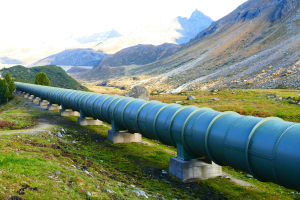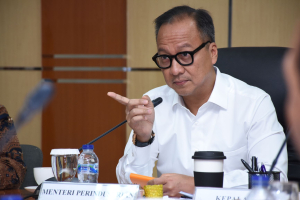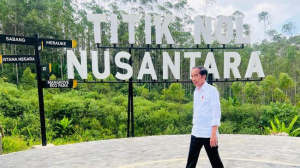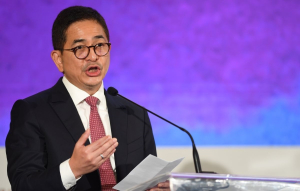Govt asked to help boost private sector involvement in water infrastructure projects
The Indonesian Chamber of Commerce and Industry (Kadin) seeks government’s intervention to bolster the engagement of private sector in the development of water resources infrastructure.
Bobby Gafur Umar, Kadin's Vice Chairman for Industry, emphasized the necessity of government action in securing funding from the banking sector. He highlighted that the attractiveness of investing in water infrastructure could be enhanced if the interest rates on investment loans were lowered.
“Addressing the issue of return of investment hinges on securing funding with lower costs, as banks typically impose high-interest rates, averaging around 11 percent, on investment loans,” Bobby said.
To tackle this challenge, he proposed implementing return of investment mechanisms such as viability gap funds or tariffs. Viability gap funds involve government contributions to construction costs, while tariff schemes offer assurance to businesses by allowing them to adjust tariffs over a specified period.
Bobby underscored the profitability of water infrastructure projects, particularly those related to Drinking Water Supply Systems (SPAM), citing the success of the Salim Group's investment in the French Water Company, Suez SA.
Meanwhile, Sandi Eko Purnomo, Head of the Regional Settlement Infrastructure Office of East Kalimantan, revealed ongoing efforts by the government to encourage private sector participation in water infrastructure projects. This initiative is evidenced by the implementation of five Government and Business Entity Cooperation (KPBU) projects in the Nusantara Capital (IKN) territory.
These projects, which include various SPAM and Wastewater Management System (SPAL) initiatives, collectively represent a total investment value of Rp 15.92 trillion (US$993 million), with an average return on investment of 13.58 percent.
The largest return on investment is expected from the SPAM Zone 5 and 6 IKN project, which is projected to yield a return of 16.2 percent. Additionally, the SPAL Zone KIPP project, with a substantial investment of Rp 5.5 trillion, is anticipated to generate a return of 12.2 percent.
Sandi emphasized the vital role of private sector investments in supporting government initiatives, fostering entrepreneurial growth, and ensuring communities to have access to affordable sanitation solutions.
Tag
Already have an account? Sign In
-
Start reading
Freemium
-
Monthly Subscription
30% OFF$26.03
$37.19/MonthCancel anytime
This offer is open to all new subscribers!
Subscribe now -
Yearly Subscription
33% OFF$228.13
$340.5/YearCancel anytime
This offer is open to all new subscribers!
Subscribe now






